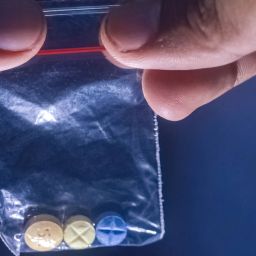Ever wondered why some folks seem to struggle with both substance abuse and deep-seated personality issues? It’s not a coincidence. The connection between a substance use disorder and a personality disorder is real, and it’s complicated. You know, it’s like trying to untangle a ball of yarn that’s been played with by a particularly enthusiastic cat. You pull one string, and another knot tightens. This isn’t just about bad habits or weak wills; it’s about the brain, the heart, and the very core of who someone is. Think of it this way: if your emotional foundation is shaky, you’re more likely to reach for something to steady yourself. And sometimes, that “something” turns into a dangerous crutch. So, let’s explore how these issues intertwine, why they do, and what can be done about it.
Understanding the Overlap: Personality Disorder and Addiction
We need to start by understanding the basics. A personality disorder isn’t just about having a few quirks. It’s a pattern of thinking, feeling, and behaving that deviates significantly from cultural expectations and causes distress or impairment. These patterns are ingrained, inflexible, and often begin in adolescence or early adulthood. Now, throw a substance use disorder into the mix, and you’ve got a situation that can quickly spiral out of control. Why? Because substances can temporarily mask the pain, the emptiness, the anxiety, or the rage that often comes with a personality disorder. It’s like putting a bandage on a deep wound; it might look better for a bit, but the real problem is still there, festering underneath. You’ve probably seen someone reach for a drink or a drug to calm their nerves, to quiet the voices in their head, or to simply feel something other than the crushing weight of their own emotions. This is a common, and very dangerous, pattern.
The Role of Trauma and Substance Abuse in Co-occurring Disorders
Let’s talk about the elephant in the room: trauma and substance abuse. Many individuals struggling with both a substance use disorder and a personality disorder have experienced significant trauma in their lives. This could be anything from childhood abuse or neglect to witnessing violence or experiencing a devastating loss. Trauma changes the brain. It rewires it for survival, not necessarily for healthy emotional regulation. When you’re constantly in a state of hypervigilance, looking over your shoulder for the next threat, it’s easy to turn to substances as a way to numb the pain. It’s like pressing a mute button on the screaming inside. That temporary relief, however, comes at a huge cost. Many therapists will tell you, that the overlap of trauma and both a personality disorder and a substance use disorder creates a difficult situation. Healing requires addressing all three, not just one or two.
Why Co-occurring Disorders Demand Dual Diagnosis Treatment
If you’re dealing with both a substance use disorder and a personality disorder, you need specialized help. This isn’t something you can just “power through”. It requires dual diagnosis treatment. Why? Because treating one without addressing the other is like trying to fix a leaky pipe without turning off the water. The underlying issues will continue to fuel the addiction, and the addiction will exacerbate the personality disorder. This means a comprehensive approach that tackles both the addiction and the mental health aspects. You need a team of professionals who understand the complexities of co-occurring disorders and can create a treatment plan that addresses your specific needs. This often includes therapy, medication, and support groups.
The Impact of Personality Disorders on Addiction and Mental Health
Certain personality traits can make someone more vulnerable to addiction. For example, individuals with borderline personality disorder may struggle with intense emotions, impulsivity, and unstable relationships. These traits can lead to self-destructive behaviors, including substance abuse. People with antisocial personality disorder might engage in risky behaviors without regard for the consequences, which can also contribute to addiction. And those with avoidant personality disorder may use substances to cope with social anxiety and feelings of inadequacy. The crucial point is that it’s not simply about seeking pleasure or escaping boredom. It’s often about trying to manage unbearable inner turmoil. The personality disorder and addiction are deeply intertwined.
The Intersection of Substance Use and Personality Disorders
How do you know if you or someone you care about is struggling with both a substance use disorder and a personality disorder? It can be tricky because the symptoms often overlap. But there are some red flags to watch out for. For example:
- Intense mood swings: One minute you’re on top of the world, the next you’re in the depths of despair.
- Impulsive behaviors: You act without thinking, often with harmful consequences.
- Unstable relationships: You struggle to maintain healthy connections with others.
- Self-destructive behaviors: You engage in activities that put your health or safety at risk.
- Difficulty coping with stress: You turn to substances to manage difficult emotions.
- A history of trauma: You’ve experienced significant trauma in your past.
If any of these sound familiar, it’s important to seek professional help. Remember, you’re not alone. Many people struggle with co-occurring disorders, and there is hope for recovery.
The Importance of Integrated Treatment for Co-occurring Disorders
When it comes to co-occurring disorders, integrated treatment is key. This means that all aspects of your mental health and addiction are addressed simultaneously. You need a team of professionals who work together to create a comprehensive treatment plan. This might include:
- Therapy: Individual and group therapy can help you develop coping skills, process trauma, and address underlying emotional issues.
- Medication: Taking medicine can ease the difficulties caused by both having a personality disorder and struggling with substance abuse.
- Support groups: Connecting with others who understand what you’re going through can be incredibly helpful.
- Lifestyle changes: Adopting healthy habits, such as regular exercise and a balanced diet, can support your recovery.
Integrated treatment recognizes that addiction and mental health are interconnected. Treating them separately is like trying to fix a puzzle with half the pieces missing.
Strategies for Managing Substance Use Disorder and Personality Disorder
Getting better from both addiction and a personality disorder is achievable, but it’s a journey that demands consistent hard work and dedication. Here’s how you can start to break free from that cycle:
- Seek professional help: Find a therapist or treatment center that specializes in dual diagnosis treatment.
- Develop coping skills: Learn good ways to handle tough feelings like stress and anxiety, so you don’t turn to substance use.
- Build a support system: Surround yourself with people who care about your well-being.
- Practice self-care: Make sure you’re looking after both your body and your feelings.
- Set realistic goals: This means getting better takes a long time and consistent effort, not a quick fix. Be patient with yourself.
- Avoid triggers: Identify situations or people that trigger your desire to use substances and avoid them.
Remember, recovery is a journey, not a destination. There will be ups and downs, but with the right support and tools, you can achieve lasting recovery.
The Impact of Early Intervention on Addiction and Mental Health
Early intervention is crucial when it comes to addiction and mental health. Basically, getting help early on makes it much more likely you’ll successfully recover. If you’re concerned about your substance use or mental health, don’t wait. Talk to a doctor, therapist, or other healthcare professional. Early intervention can prevent problems from worsening and can improve your overall quality of life. Think of it like catching a small fire before it turns into a raging inferno. In simpler terms, dealing with the problem quickly helps prevent it from getting much worse.
The Challenges of Dual Diagnosis Treatment and How to Overcome Them
Dual diagnosis treatment can be challenging. It requires a significant commitment of time, effort, and resources. It’s important to know that you might experience some bumps in the road or even slip back a little during your recovery. But with the right support and determination, you can overcome these challenges. Here are some tips:
- Be patient: Recovery takes time. Don’t lose hope if things don’t improve right away.
- Be honest: Tell your therapist, and admit to yourself, the real challenges you’re facing.
- Be persistent: Don’t give up on your recovery, even when things get tough.
- Find a support system: Find people who get what you’re dealing with, so you don’t feel alone.
- Celebrate your successes: Recognize and celebrate every step forward, even the tiny ones.
Remember, you’re not alone in this. Many people have successfully navigated dual diagnosis treatment and achieved lasting recovery.
Finding the Path to Recovery from Co-occurring Disorders
It’s important to remember that recovery is possible. Even if you’ve been struggling for years, there is hope for a better future. Healing from co-occurring disorders requires a commitment to change and a willingness to seek help. But with the right support and treatment, you can build a life that’s free from the grip of addiction and mental illness. Imagine a life where you’re not constantly battling your inner demons, where you can build healthy relationships, and where you can pursue your dreams. That life is within reach.
Seeking Professional Help?
If you or someone you know is grappling with a substance use disorder, a personality disorder, or any mental or behavioral health challenge, don’t wait—reach out today. Take the first step towards healing and a brighter future; contact our dedicated team for compassionate and comprehensive support. Your journey to recovery begins with a single call, so let us guide you toward a life of wellness.
The Crucial Role of Support Systems in Dual Diagnosis Treatment
Support systems are vital in dual diagnosis treatment. This means these connections offer you a feeling of being part of a group, someone to understand you, and people to cheer you on. When you’re battling both a substance use disorder and a personality disorder, you need people who “get it.” These are the individuals who can offer a shoulder to lean on during tough times, celebrate your victories, and gently nudge you back on track when you veer off course. Support can come from various sources, including family, friends, support groups, and therapists. Think of it as building a safety net. When you feel like you’re falling, there are people there to catch you. A strong support system can make all the difference between relapse and recovery. Moreover, it’s not just about emotional support. Practical assistance, like help with daily tasks or transportation to appointments, can also play a significant role. It’s like having a team of cheerleaders and coaches, all working together to help you reach your goals.
Navigating the Complexities of Personality Disorder and Addiction
The interplay between a personality disorder and addiction is intricate. It’s not a simple cause-and-effect relationship. Instead, it’s a complex web of factors that contribute to both conditions. For instance, individuals with borderline personality disorder might use substances to regulate their intense emotions, while those with antisocial personality disorder might engage in substance use as a way to rebel against authority or seek thrills. Additionally, the presence of a personality disorder can complicate addiction treatment. It can make it more difficult to establish trust, maintain motivation, and adhere to treatment plans. Therapists must be skilled in working with individuals who have both conditions, recognizing that they require a unique approach. It’s like trying to navigate a maze with multiple dead ends; you need a guide who knows the way. The key is to address the underlying personality issues that contribute to the addiction, rather than just focusing on the substance use itself.
Addressing Trauma and Substance Abuse in Dual Diagnosis Treatment
As discussed earlier, trauma and substance abuse often go hand-in-hand in individuals with co-occurring disorders. Therefore, addressing trauma is a vital component of dual diagnosis treatment. This might involve trauma-focused therapies, such as eye movement desensitization and reprocessing (EMDR) or cognitive processing therapy (CPT). These therapies can help individuals process traumatic memories, reduce symptoms of post-traumatic stress disorder (PTSD), and develop healthier coping mechanisms. It’s like cleaning out a wound to prevent infection. You need to address the root cause of the pain, not just the surface symptoms. Moreover, creating a safe and supportive environment is essential for trauma recovery. Individuals need to feel heard, validated and understood. This means therapists must be sensitive to the impact of trauma and avoid retraumatizing their clients.
The Long-Term Impact of Untreated Co-occurring Disorders
The consequences of leaving co-occurring disorders untreated can be devastating. Without proper intervention, individuals may experience a range of negative outcomes, including:
- Increased risk of relapse: Untreated mental health issues can fuel substance use.
- Worsening mental health symptoms: The symptoms of personality disorders can intensify over time.
- Relationship problems: Addiction and mental illness can strain relationships with family and friends.
- Legal and financial difficulties: Substance use can lead to legal problems and financial instability.
- Increased risk of suicide: Individuals with co-occurring disorders are at a higher risk of suicide.
It’s like ignoring a faulty foundation in a building; over time, the whole structure can collapse. Therefore, seeking treatment is not just about improving quality of life; it’s also about preventing serious consequences.
The Importance of Relapse Prevention in Addiction and Mental Health
Relapse prevention is a critical aspect of addiction and mental health treatment. It involves developing strategies to avoid triggers, manage cravings, and cope with stress. This may include identifying high-risk situations, practicing relaxation techniques, and building a strong support network. Relapse is a common part of the recovery process, but it doesn’t mean failure. It’s an opportunity to learn from mistakes and strengthen your recovery plan. Think of it like learning to ride a bike; you might fall a few times, but you eventually learn to balance. Furthermore, it is important to develop a plan of action with your therapist. This plan should include what to do in case of a relapse, and who to call for support.
How Medication Helps in Dual Diagnosis Treatment
Medication can play a valuable role in dual diagnosis treatment. It can help manage symptoms of both personality disorder and substance use disorder. For example, antidepressants can help alleviate depression and anxiety, while mood stabilizers can help regulate mood swings. Medication is not a cure, but it can provide relief from distressing symptoms and make it easier to engage in therapy. It is like taking medication for diabetes. It helps control the symptoms, but you still need to make lifestyle changes. You need to collaborate with a doctor who specializes in mental health to figure out the best medicine and how much of it you should take.
Managing Skills for Substance Use Disorder and Personality Disorder
Building resilience is essential for individuals with a substance use disorder and a personality disorder. Resilience means being able to recover from tough times and handle stressful situations. There are several coping skills that can help build resilience, including:
- Mindfulness: Practicing mindfulness can help you stay present in the moment and manage difficult emotions.
- Cognitive restructuring: This involves challenging negative thoughts and replacing them with more positive ones.
- Problem-solving: Developing problem-solving skills can help you address challenges in a healthy way.
- Self-care: Taking care of your physical and emotional needs is crucial for resilience.
These skills are like tools in a toolbox. Basically, having more skills and resources makes you better prepared to deal with difficult situations in life.
The Future of Co-occurring Disorders Treatment
The field of co-occurring disorders treatment is constantly evolving. Researchers are developing new and innovative approaches to help individuals achieve lasting recovery. These advancements include:
- Telehealth: Telehealth can make treatment more accessible to individuals in remote areas or those with mobility issues.
- Personalized medicine: Tailoring treatment to individual needs based on genetic and other factors.
- Technology-assisted interventions: Using apps and other technology to support recovery.
- Integrated care models: Improving coordination between mental health and addiction services.
These advancements offer hope for more effective and accessible treatment for individuals with co-occurring disorders.
The Importance of Self-Compassion in Addiction and Mental Health Recovery
Self-compassion means being gentle with yourself, trying to understand your own feelings, and accepting who you are. Many individuals with co-occurring disorders are highly self-critical and judgmental. Learning to practice self-compassion can help reduce shame, guilt, and self-blame. It is like treating yourself as you would treat a dear friend who is struggling. It is important to remember that you are not alone, and you deserve compassion.
Conclusion
The journey to recovery from substance use disorder and personality disorder can be challenging, but it is possible. It requires a comprehensive approach that addresses both conditions simultaneously. Dual diagnosis treatment, integrated care, and a strong support system are essential components of successful recovery. Remember that healing takes time, patience, and commitment. By seeking professional help, developing coping skills, and practicing self-compassion, you can build a life that is free from the grip of addiction and mental illness. Take the first step today, and embark on a path to a brighter future. Remember, you are worthy of recovery and a life of fulfillment.









